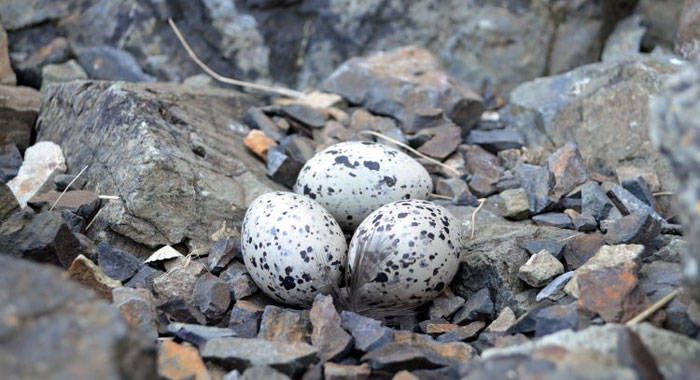The Ministry of Forestry has condemned what it has presented as the intentional setting of bushfires on Petit Canouan to facilitate the illegal harvesting of bird eggs.
In a statement this week, the ministry said that the Government of St. Vincent and the Grenadines condemns all activities that result in the burning of natural vegetation on Petit Canouan.
Petit Canouan, an islet in the southern Grenadines, is home to thousands of birds and for this reason was designated as a wildlife reserve.
“The unlawful practice of seasonally burning large areas of the landscape in order to provide greater access to the illegal harvesting of bird eggs will not be tolerated. This activity results in the reduction or elimination of critical seabird populations and habitats,” the ministry said in a statement.
The statement added: “Persons who are engaged in illegal activities on wildlife reserves are asked to cease and desist. A strategic monitoring process will be established to ensure full compliance. All systems will be engaged to ensure the increased enforcement of the Wildlife Act. Let us work together to protect the birds of St. Vincent and the Grenadines.”







We sure have a lot of hungry dogs in our country who care nothing about the environment which is also why SVG should be called the nasty place to visit.
C. ben-David, I’m seeking some clarity to your comment. I do so from my position as an environmentalist of 32 years and also as one who enforce the Wildlife Protection Act and the Forest Resource Protection Act from their inception in 1987 and 1992 respectively. Our natural environment is extremely important to us. In fact, we are an integral part of our natural environment. If I’m to understand the first part of your statement, are you acknowledging that economic decisions of our citizens, especially the poor sometime results in actions that degrade our environment? That being the case, your statement is true.
Simply put, the links between our economy and our environment are diverse: our environment provides resources to our economy, and acts as a sink for emissions and waste. Our natural resources are essential inputs for production in many of our sectors, while production and consumption also lead to pollution and other pressures on the environment. Poor environmental quality in turn affects economic growth and well-being by lowering the quantity and quality of resources or due to health impacts, etc. In this context, environmental policies and laws, like the ones aforementioned, can curb negative feedback from the economy on the environment (and vice-versa). How effective these are, is conditioned by, among other things, the receptiveness of our communities in understanding and supporting conservation.
This article Im sure was written to inform Vincentians as to yet another practice which is having negative environmental impacts. Whether or not our country becomes a nasty place to visit is strongly hinged on our sense of patriotism and our positive contributions, including those in the media, in advising our own citizens as to what is required to improve their economic choices, quality of life and inevitably an improved natural environment.
This is good reporting Kenton, your articles on the environment are refreshing in contract fto all the youth violence going on in the country. Good work, keep it up.
I mean contrast not contract. Sorry about that.
C.ben-David what was said may be true that there are a lot of people who care nothing about the environment. However, having said that your dialogue and you conversation reflect a person who had very poor upbringing. Certainly, you are not from the upper class of VincentIan society. In fact you may be in a class of your own kind. Why not take off you feathers and unmasked your identity.